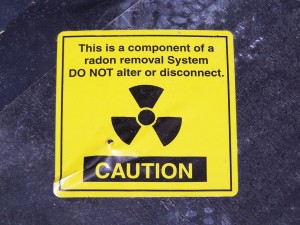Health effects of radon
Radiation Protection
Is radon really bad for you?
Breathing radon over time increases your risk of lung cancer. Radon is the second leading cause of lung cancer in the United States. Nationally, the EPA estimates that about 21,000 people die each year from radon-related lung cancer. Only smoking causes more lung cancer deaths.
The USA EPA has established the radon level of 4.0 picocuries per litre to be the action degree for radon gas in residences. Definition, take action to minimize radon levels that are higher than 4 picocuries per liter. Keep in mind https://radon1.com/radon-mitigation/ that radon danger adheres to a direct contour of the amount vs the time subjected to it plus the added element that each individual may be more or less prone to radon associated cancer cells.

Many health and wellness and also radiation professionals agree that while a little part of granite countertops could give off enhanced levels of radon, a lot of counter tops produce incredibly low degrees. According to the United States Environmental Protection Agency (EPA), it's extremely not likely that a granite counter top in a home would certainly boost the radiation degree above the regular, natural background level that originates from nearby dirt and also rocks. Still, individuals concerned about radon from countertops and also from various other home resources can evaluate these levels making use of residence detection sets or can employ a professional to do the screening (see the area "Exactly how can I prevent exposure to radon?"). The words radon examination "stopped working" or radon examination "passed" are thrown around out there.
Is radon mitigation really necessary?
When radon gas enters the body, it exposes the lungs to small amounts of radiation. In small quantities, experts say this is harmless. However, in persistent exposures or larger quantities, radon can damage the cells of the lining of the lungs, increasing a person's chance of developing lung cancer.
It's impossible to get to an absolutely no percent risk in locations where radon is common, but lowering the gas degree as high as is practical is worth the initiative. Smoking cigarettes stays the primary source of lung cancer cells in the United States. Nonetheless, radon is typically the 2nd biggest factor to the illness in any given year. When you integrate a cigarette smoking behavior with a house that has hazardous radon degrees, you can raise your threat for lung cancer cells 9 times over. Recognizing simply what is radon screening isn't simply necessary if you're a cigarette smoker or there's a cigarette smoker in your home, yet it's necessary for every person.
- Your danger of lung cancer cells increases substantially with direct exposure to greater radon levels.
- Lung cancer threat rises 16% per 2.7 pCi/L boost in radon direct exposure.
- Radon gas is a naturally-occurring by-product of the radioactive degeneration of Uranium in the dirt.
- Depending upon your geographical location, the radon levels of the air you breathe outside of your residence might be as high as 0.75 pCi/L.
- The national average of outdoors radon degrees is 0.4 pCi/L as well as it is estimated by the National Academy of Sciences that exterior radon degrees cause around 800 of the 21,000 radon generated lung cancer deaths in the United States annually.
- The US EPA has put it simply, stating, "Any radon exposure has some danger of creating lung cancer.
January is National Radon Action month and the Epa is asking house owners to "conserve a life" by screening for radon as well as taking care of any kind of problems they discover. Radon is a contaminated gas and exposure to it triggers 21,000 lung cancer cells deaths per year-- only smoking causes much more. Due to the fact that you can't see, scent or preference radon, it's important to occasionally check the air in your home.
What to Find out about the Threats of Radon Gas in Your Home
What are the symptoms of radon in your home?

If a person has been exposed to radon, 75 percent of the radon progeny in lungs will become "harmless" lead particles after 44 years. When an alpha particle damages a cell to make it cancerous, the onset of lung cancer takes a minimum of 5 years but most often 15 to 25 years, http://radon1.com and even longer.
The research paid close attention to the accomplice's levels of smoking cigarettes, work-related exposure to carcinogens and education and learning achievement. However, unlike most of the domestic radon studies, the research was not population-based.
How long does it take for radon to cause cancer?
Fact: You will reduce your risk of lung cancer when you reduce radon levels, even if you've lived with an elevated radon level for a long time. Keep in mind that radon levels below 4 pCi/L still pose some risk and that radon levels can be reduced to 2 pCi/L or below in most homes.